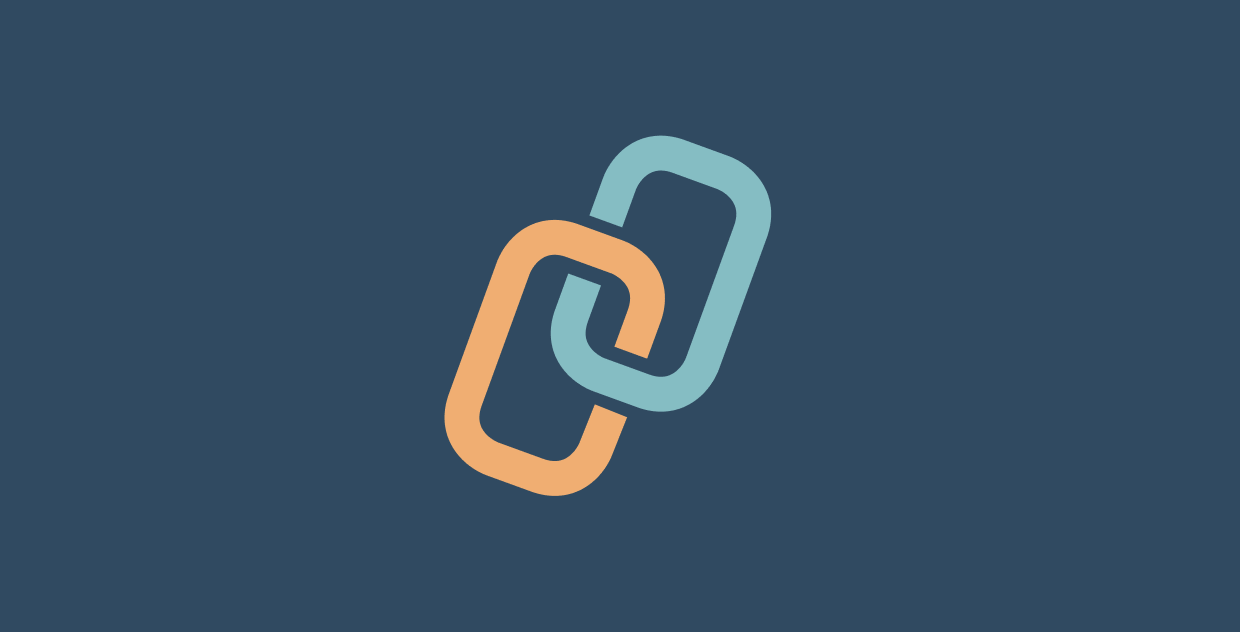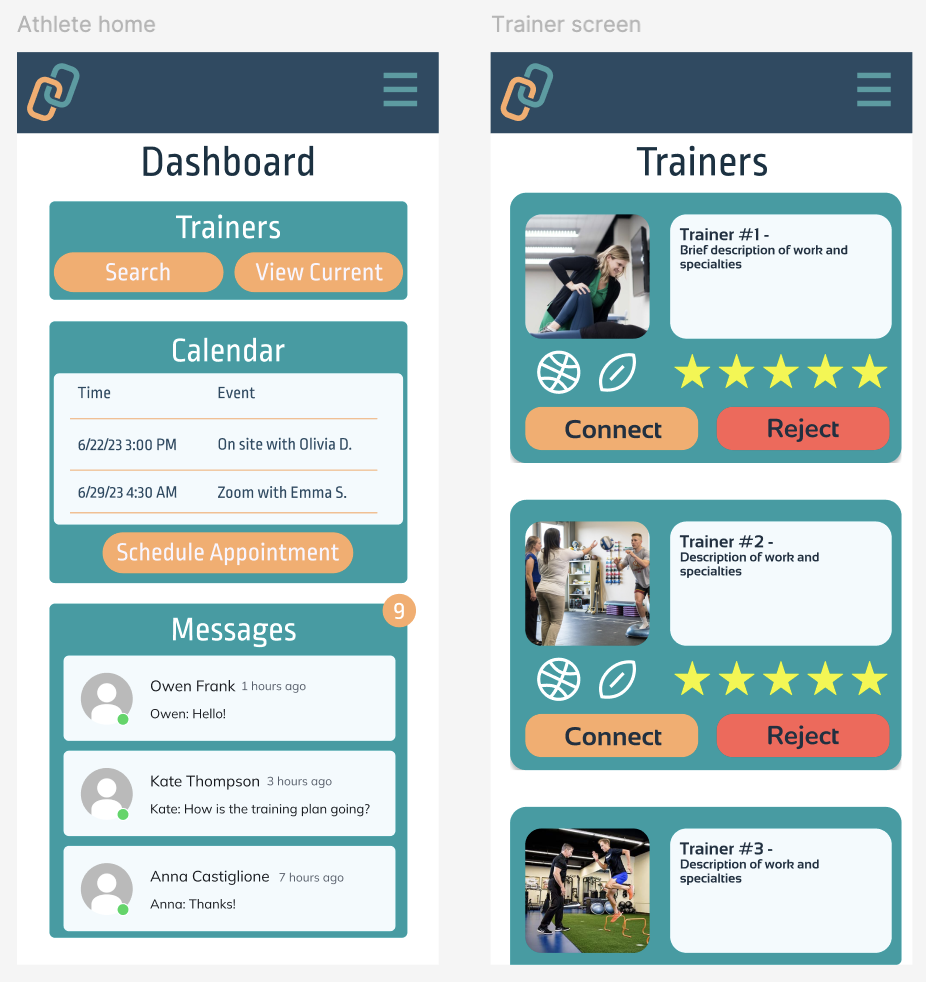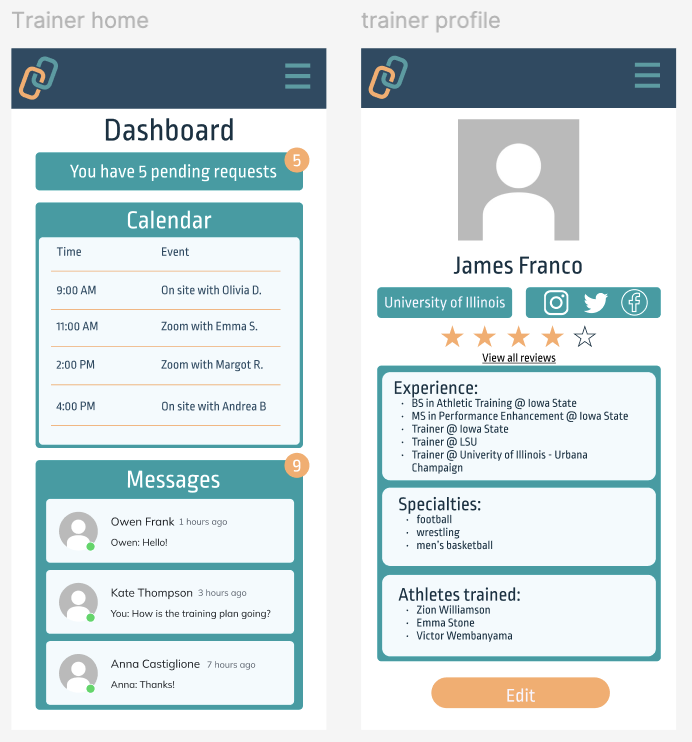
Project Overview:
Ath-Link is a digital platform designed to connect athletes — especially those in rural communities — with specialized trainers for faster, safer recovery. Motivated by stories like Owen Frank’s, whose injury recovery was prolonged by lack of access, Ath-Link offers athlete-trainer matching, direct messaging, and scheduling in a single streamlined app. Our vision was to break down geographical barriers and make high-quality athletic care accessible to everyone, no matter where they train.
Project Objectives:
We aimed to design an intuitive platform that feels welcoming to high school athletes while also providing robust tools for trainers and collegiate athletes. Our objectives included:
• Helping athletes recover efficiently with personalized trainer recommendations.
• Making communication transparent and seamless.
• Creating a lightweight, responsive app usable even with limited internet access.
• Prioritizing user trust through privacy controls and transparent profiles.
Research & Key Insights:
We conducted interviews with high school athletes, collegiate athletes, and trainers. Insights included:
• Athletes value quick appointment reminders and progress tracking to stay motivated.
• Rural athletes need lightweight apps that work on slower connections and allow remote sessions via Zoom.
• Trainers want streamlined tools to approve appointments and view athlete history.
• The idea of connecting with friends or seeing their trainer choices resonated, but raised privacy considerations.
• Visual features like star ratings and athlete profiles helped build trust.
Final Product:
The Ath-Link prototype includes a personalized matching system, direct messaging, appointment scheduling, trainer profiles, and optional networking tools. The UI is clean and modern, balancing usability for younger high school users and functionality for professional trainers.
By integrating what other platforms offered separately, Ath-Link helps athletes recover faster and stay engaged throughout their rehab journey.


What We Learned:
• Big challenges require small, iterative steps: starting focused (trainer matching & messaging) kept the project achievable.
• Real user research matters: feedback challenged assumptions and led to features athletes truly wanted.
• Balancing features and simplicity is key: too many social tools risked distracting from core recovery tools.
• Designing for rural areas reminded us to prioritize lightweight design and offline-friendly features.
What We Might Do Differently:
In the future, we would explore deeper networking features, like athlete endorsements and event boards. We’d also add progress visualization (like a chain filling as users recover) and let athletes share trainer recommendations with friends while keeping privacy controls front and center.